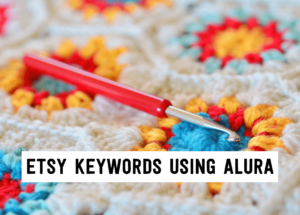
How to find the best Etsy keywords in 3 simple steps using Alura
If you want to be found in search results on Etsy, you need to optimize your product listing for SEO. And if you want to
join
When it’s time to build your own online store to sell your handmade products online, there is one question that seems to rule them all: Should you use Shopify or should you use WordPress as your website builder? Which ecommerce platform is best? What’s the difference between WordPress and Shopify? And ultimately, how are you meant to decide the pros and cons for yourself?
The problem with this question is that most people giving you advice have a pretty clear opinion for themselves, and that’s fair enough. They either love WordPress or they love Shopify. But today, I’d like to help you choose between Shopify and WordPress from a neutral perspective. Then you can pick the ecommerce platform option that works the best for your online business.
To start off, I feel like we need to be really honest for a minute: The truth is when it comes to picking between Shopify and WordPress for your online business, in the end it really doesn’t matter.
There, I said it.
In the end, both of these website building options are great options, and I mean that.
WordPress and Shopify are both equally good for your online store. People will tell you, “Get Shopify!” or “Get WordPress!” Because that’s what they are using for their online business, and again, that’s fair enough. But the truth is, when it comes to Shopify VS WordPress, they’re both excellent platforms. Both website builders are easy to use, and will let you build an online store that will scale and grow with your online business over time. They both have add-ons and plug-ins that you can use to add functionality to your website and grow your marketing strategy.
I think what you really have to remember, what’s really important, is that:
The success of your online store does not depend on whether you’re using Shopify or WordPress.
You have to make a decision so that you can move on and start worrying about what really matters, which is bringing traffic to your ecommerce site and converting this traffic into paying customers.
Again, whether you are using Shopify or WordPress,the platform you are using is not what will make or break your handmade business or online store. So whatever you decide in the Shopify VS WordPress debate, just know that you’ve made the right decision and roll with it.
Liberating? I thought so!

FREE WORKBOOKS, CHEAT SHEETS, AND RESOURCES TO HELP YOU START, GROW AND PROFIT FROM YOUR HANDMADE SHOP.
Okay, now that this is out of the way, there is one thing that you do need to understand to make the best decision for your online business. This one thing is the number one difference – the real difference – between Shopify and WordPress. It has to do with hosted versus non-hosted platforms. If you’re already bored, stay with me. I promise I’m going to explain this Shopify VS WordPress difference to you in plain English without using any techy words whatsoever, but you do need to understand this concept.
Shopify is a hosted platform. This means that when you sign up for an account with Shopify, they will give you a domain name, your website hosting, and take care of updates and security for your online business. It’s all part of your monthly fee. But that’s the thing when you use Shopify. The fee is a little bit higher than what it would be with WordPress because everything is included and they take care of all that techy, web hosting stuff for you. The starter package with Shopify is $29 per month.
WordPress on the other hand is self hosted (we are talking about wordpress.org not wordpress.com because that’s what you want to be using). What it means is that if you decide to go with WordPress.org, you will have to find your own hosting provider, and then install WordPress onto your website.
Now I know that with what I just said, you’re probably thinking, “Well, I’m non-techy. Shopify is definitely the better option for my ecommerce site,” and it does make sense if you hate anything techy and you don’t want to have to deal with hosting or anything yourself. But it also comes at a higher price point. Simple as that! If you’re just testing the water and you’re not making much sales yet, then I know it can be a bit of a turnoff for some of you.
Now with WordPress, although it can sound like you need a masters in nerdism to be able to install and use WordPress software, it’s not necessarily the case.
BUT (and that’s really important), you have to pick a GREAT hosting provider.
With a host like SiteGround for example, you can have your domain, your hosting, automatic updates, and a safe and secure website all with the same package, meaning that SiteGround actually does everything “techy” for you, and they can even install WordPress on your website for you.
In my opinion, it’s more about finding the right host to help use WordPress than really saying, “WordPress is too techy and Shopify is just the easier solution.” I think that if you use WordPress and SiteGround, it really comes down to the same as using Shopify, because you get those automatic updates, safety features so your site won’t get hacked, domain name, and hosting all included in your hosting account, and in your monthly fee, as well as 24/7 fast, reactive, and friendly support to help you if anything comes up.
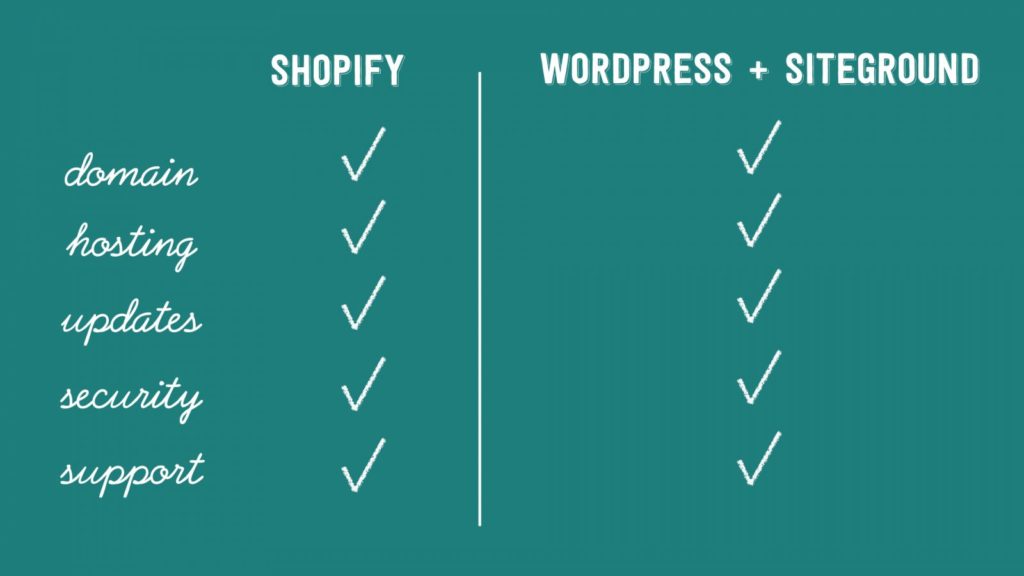
So, I know this isn’t the advice you’ll hear most people give, but honestly, if you don’t know whether you want to use WordPress or Shopify, just remember that I really recommend that you find a host like SiteGround if you want to use WordPress and you’re non-techy.
But in the end, when it comes to Shopify VS WordPress, follow your gut! If you love the Shopify platform and you really want to use it, then use Shopify. If you feel like you don’t want to be locked into using Shopify and you’d rather have the flexibility of using WordPress, then use WordPress. I know it’s not the advice you want to hear, but there isn’t a wrong decision to be made here.
The most important factor is not the online platform you choose for your online business. Your ecommerce platform is about your products, your branding and your marketing strategy. Before any of that happens, you need to make a decision on which website platform you’re going to be using. Don’t dwell on it for too long!
I’d love to know what website platform you are using for your online store. Leave a comment below and let me know what ecommerce platform you’re using and if you feel like this is a good fit for your online business or not, and let’s have a conversation in the comments below.
And remember to check out our FREE resource library for makers and handmade shop owners, full of handy workbooks, guides and checklists to help you grow your handmade business without the stress!
you might also like…
related articles

If you want to be found in search results on Etsy, you need to optimize your product listing for SEO. And if you want to

There has been a lot of talk in the Etsy community — and I mean A LOT of talk — about Etsy’s payment account reserve

Anyone who knows me knows that I am a HUGE advocate for using email marketing to grow and scale your handmade business. But you may
Sign up below and get instant access to a collection of FREE practical guides, workbooks, and checklists that will help you start, grow and profit from your handmade shop. (without pulling your hair out!).
disclaimer
subscribe to youtube
become a member
get in touch
We acknowledge and give thanks to the Budawang and Yuin people, the Traditional Owners of the land we work and live on. We pay our respects to all Aboriginal and Torres Strait Islander Peoples and elders past, present and emerging.
4-step Maker’s Roadmap System
Library of In-Depth Courses and Training
Live Monthly Coaching Sessions
A Supportive Online Community
close
We hate spam too. Unsubscribe at any time.
close
We hate spam too. Unsubscribe at any time.
close
We hate spam too. Unsubscribe at any time.
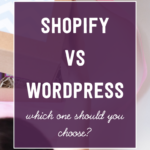
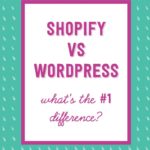
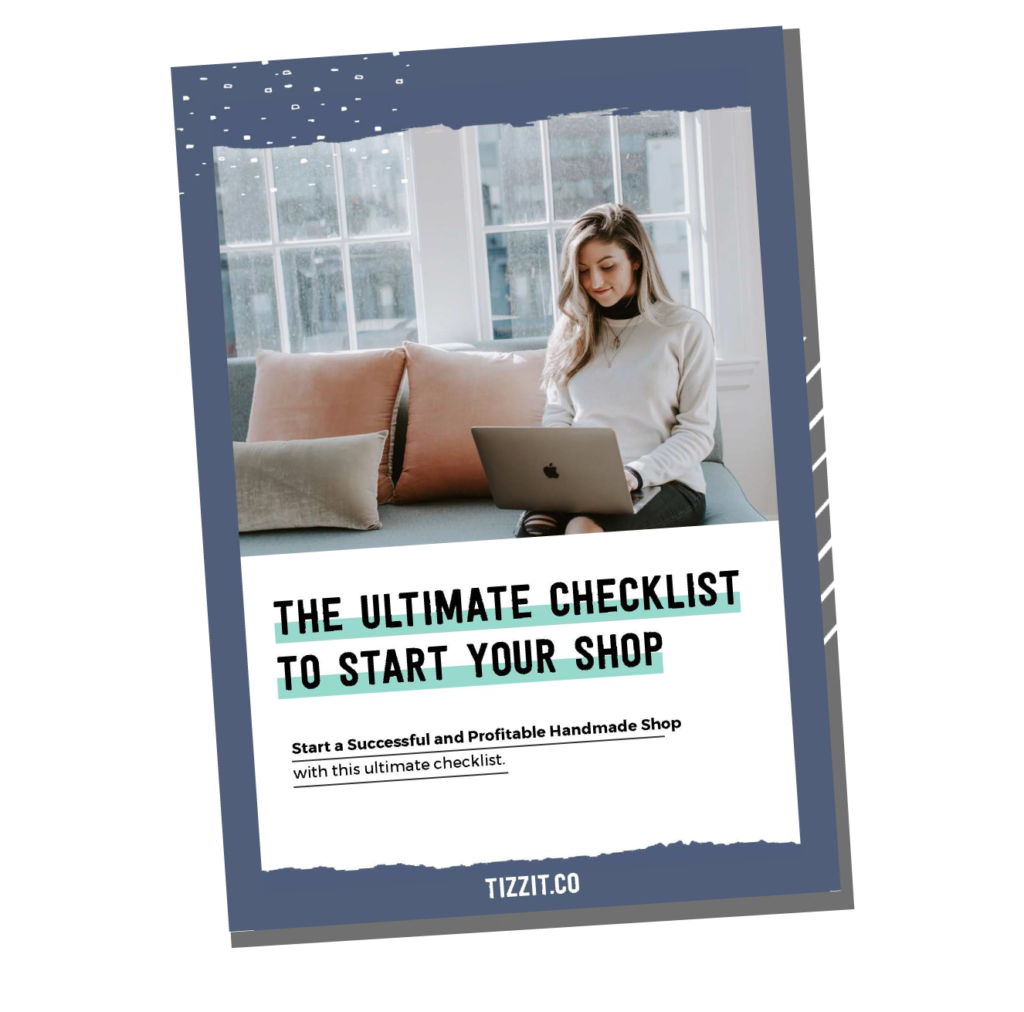
the ultimate
start a shop checklist

Get Instant Access to
The FULL Resource library
Fascinating that you should post this just now as it is exactly the decision I am trying to make for my reworked website. I already have my domain name and a site to host and I realized I don’t really need a shopping cart because my products are made to order and take a month to ship so I am not running CC until later (except for the deposit). The solution I am leaning towards is to have an Etsy shop for immediately available products and WordPress website for everything else. If the time comes that I want a shopping cart I can add it to the WordPress site.
Hi Rosemary,
That sounds like a great plan! You can even embed Etsy onto your WordPress site with a plugin like Etsy360 down the track, or even use Etsy mini so this is definitely a great choice 🙂
Perfect timing – I just opened this “can of worms ” for myself and I love the advice not to dwell too long. I have way too much on my plate to keep making this a big dramatic decision:-) I think I am leaning towards wordpress – I just need to do a little education on hosting providers! Thank you for this! (and for all you do!)
My best tip for hosting provider is BY FAR Siteground! I have tried and worked with at least 10 different hosts, and nothing comes close to siteground in terms of service, customer support, security/backup, and help when you need it! You should check them out 😉
my existing site is hosted by Godaddy so I add a wordpress site. Godaddy is a great host.
Now I have to redesign my logo, then interface with PayPal (using new logo so jump to their site is transparent), and interface with facebook (using purchase from FB). My next task will be adding product to the store and interface with Pinterest. Hope I can do all this in less than 6 months so I’m ready for christmas.
i
Hi Steve! You sure can do it in the next 6 months as long as you stick to a plan 🙂 I am convinced you can do it!
Hi Deborah, I’ve used Siteground for the past 14 years. But only for informational websites. Now that I’m starting up an online store, I’m not sure WordPress with an e-commerce plug in for payments (i.e. payment gateways, etc) is easier to handle than a platform like Shopify that has it built in. Perhaps I’m not right in that description. Is my understanding right that with Shopify, the payment gateway and all that is necessary to process payments is included in the service. Whereas with SiteGround+Wordpress+e-commerce platform, you’d need a 3rd party payment gateway plug-in.
Hello 🙂 Great question!
To take payments online, the 2 most popular payment processors are Stripe and Paypal. Shopify integrates directly with them and does come with hosting, domain name, etc. It’s a “package deal” if you want.
With WordPress, you’re right, you need to get your own hosting and domain (Siteground) and install WooCommerce on wordpress, which is a free e-commerce plugin that integrates with Paypal and Stripe for free as well.
It is not as hard as it might sound, but if you would rather not have to deal with any of it, then Shopify is the way to go (but there is a monthly fee)